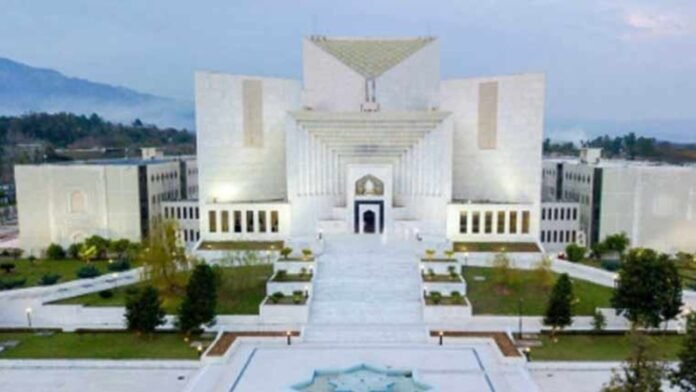Today, the Supreme Court of Pakistan will resume Article 63A review appeals seeking interpretation about political matters. Article 63A relates to the disqualification based on a defection of parliamentarians. This has been interesting for ages, not because of the politicians but because of the lawyers.
The previous day, Justice Muneeb Akhtar did not participate in the bench, and a new judicial panel had to be formed. In response, the Judges’ Committee promptly made changes by substituting. Justice Muneeb Akhtar with Justice Naeem Akhtar Afghan to prevent unnecessary delays in the hearing of the matters.
Key Players in the Case Article 63A
The case is being passionately followed by the major political interests and legal practitioners. Shehzad Shaukat, President of the Supreme Court Bar, had his time to argue yesterday. He also presented detailed images showing the need to understand Article 63A and its interpretation. The federal government and the Pakistan People’s Party (PPP) have opposed the review petitions.
However, it is notable that the Respondent party, Pakistan Tehreek-e-Insaf (PTI), has expressed reservations against the newly formed bench. PTI’s top lawyer cum MNA, Mr Barrister Ali Zafar, objected to the constitution of the bench, raising issues of its impartiality and decorum of its members.
Legal and Political Implications of the Case Article 63A
Moving on to Article 63A, its execution theory and practice will be pivotal to the political landscape in Pakistan. This constitutional provision primarily addresses the disqualification of Members of Parliament, who threaten party loyalty, as it aims to discourage and prevent floor-crossing scandals. Over the years, the scope and application of this provision have faced challenges, particularly influenced by the country’s political history and rebellions from certain politicians.
Any fresh interpretations provided by the court or a new interpretation could change the course of the current power dynamics among political parties. It could transform the practices used in the upcoming elections and how political avowal is practiced in the parliament. Political and legal analysts are watching the case closely as it may present an opportunity to redefine the hitherto believed equilibrium in Pakistan’s legislation and politics.
Viable Resolved Issues and Strategies Ahead Article 63A
The potential problems, such as those raised by PTI about the bench’s composition, could also lead to additional litigation. The court will likely satisfy these issues before engaging in the substantive legal debates concerning Article 63A.
Forward-looking, it will be important to follow how the Supreme Court majority will address both the challenges to the bench formation and the merits of the review appeals. Legal analysts predict that the eventual ruling by the court will not be only active in understanding the tenets of Article 63A and the entire constitution and political setup of Pakistan.
Conclusion
Today, the Supreme Court is sitting in the hearing again, and all eyes are on the result of this cliffhanger case.
Article 63A Interpretation and the issues of the bench composition will be fundamental propositions in the proceedings. Legal practitioners and political outfits are anxiously awaiting the court’s verdict because of the implications it is likely to have on the political landscape of Pakistan.


